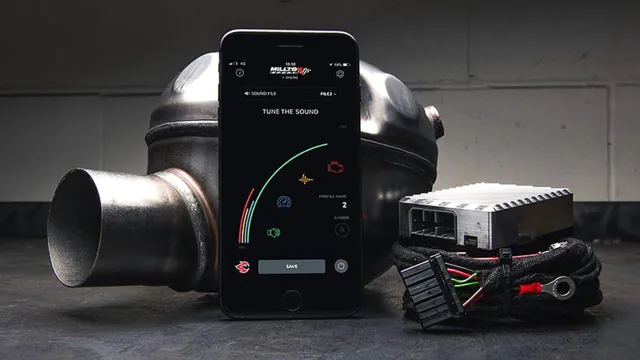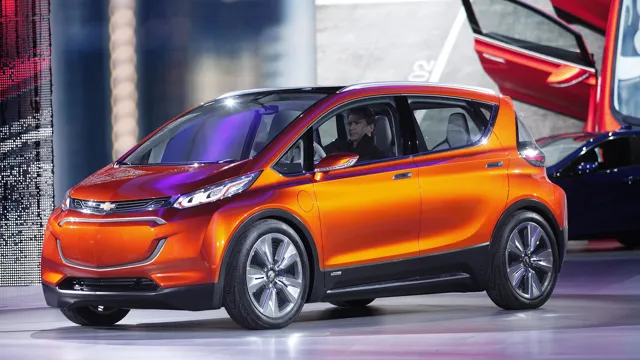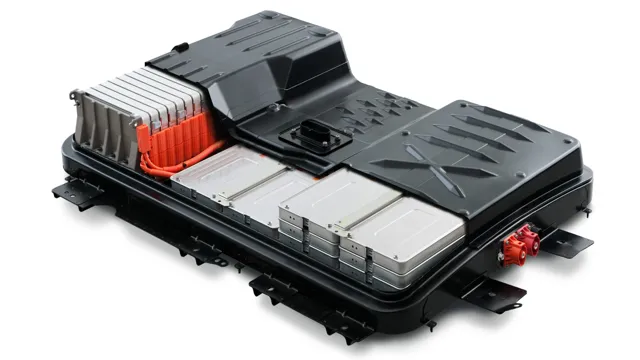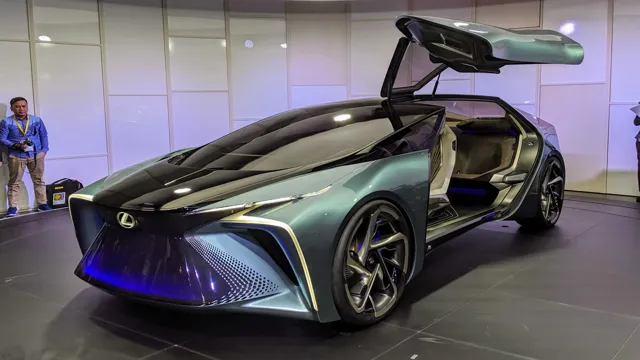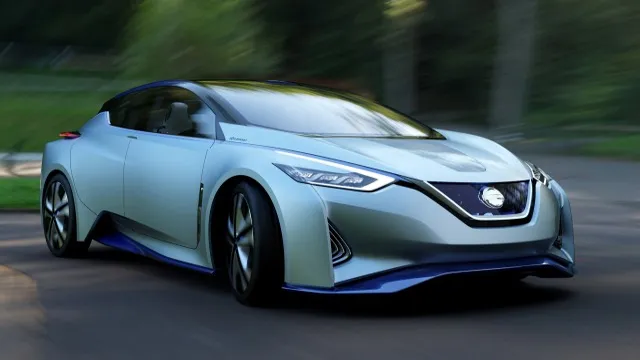Uncovering the Truth Behind Fake News about Electric Cars: Separating Fact from Fiction
There’s no denying that electric cars are becoming more and more popular as people become increasingly conscious about their carbon footprint. However, with the rise in popularity comes an influx of fake news and misinformation. It can be difficult to separate fact from fiction when it comes to the world of electric cars.
With so much information out there, it’s important to have a clear picture of what’s true and what’s not. So, what are the common myths and misconceptions surrounding electric cars, and which ones hold up to scrutiny? Let’s take a closer look and bust some myths.
The Dangers of Fake News in the Electric Car Industry
The electric car industry has seen tremendous growth in recent years, with more and more people making the switch to eco-friendly cars. However, amongst the rise of this industry, there has been an increase in fake news spreading misinformation about electric cars. This fake news, often spread through social media platforms, can be dangerous as it can lead to people making decisions based on false information.
For example, one fake news story claimed that electric cars were more dangerous than gasoline cars due to the risk of electrocution. This couldn’t be further from the truth. In reality, electric cars are just as safe as gasoline cars and have undergone strict safety testing.
The spread of fake news only serves to hinder the progress of the electric car industry and could potentially put people’s lives at risk. It’s important to fact-check information before believing and sharing it, especially when it comes to crucial matters like safety.
Misleading Claims about Electric Car Efficiency and Range
Electric car efficiency and range, fake news in the electric car industry Fake news is a real danger in the electric car industry, especially when it comes to misleading claims about the efficiency and range of electric cars. One of the most common false claims is that electric cars have a limited range and are less efficient than traditional gas-powered vehicles. This is simply not true.
In fact, electric cars are far more efficient than gas-powered cars and have a range that is more than sufficient for most drivers. The danger of these false claims is that they can discourage people from considering electric cars as an option, leading to missed opportunities to reduce carbon emissions and save money on fuel costs. It’s important to fact-check any claims you come across and do your own research before making a decision about which car to purchase.
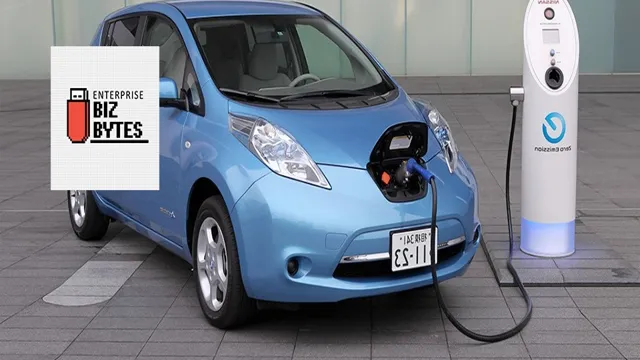
False Statements about Electric Car Safety and Fire Hazards
Electric car safety The electric car industry is constantly evolving, and unfortunately with that comes some misinformation and fake news. One of the most prevalent false statements is that electric cars are more prone to fires and safety hazards than traditional gasoline-powered cars. This couldn’t be further from the truth.
In fact, electric cars often have better safety features and are less likely to catch fire than traditional cars. This misinformation can be dangerous, as it can discourage people from making the switch to electric cars, which are better for the environment and often more affordable in the long run. It’s important to fact-check and research before believing and spreading any information about electric car safety or fire hazards.
The Truth About Electric Car Performance and Sustainability
Fake news about electric cars has been circulating for quite some time, leading to confusion about their performance and sustainability. The truth is, electric cars are just as capable as their gas-powered counterparts and offer a more sustainable mode of transportation. With advancements in technology, electric cars have impressive acceleration and speed capabilities.
Additionally, they have a longer lifespan, require less maintenance, and emit zero emissions. However, misconceptions about the lifespan of electric car batteries still exist. Many believe that they must be replaced frequently and are not environmentally friendly.
In reality, electric car batteries can last up to 200,000 miles with proper care and can be recycled at the end of their life. It’s important to separate fact from fiction when it comes to electric cars to make informed decisions about the vehicles we drive.
Real-world Data on Electric Car Mileage and Charging Times
Electric car mileage Electric cars have been gaining popularity in recent years due to their eco-friendliness and low operating costs. However, there are many misconceptions surrounding their performance, particularly in terms of mileage and charging times. Real-world data, however, tells us a different story.
Studies have shown that electric cars are capable of covering significant distances on a single charge, with some models capable of traveling up to 300 miles. Moreover, charging times have been improving steadily, and some newer models can charge up to 80% in just 30 minutes with fast charging technology. While range anxiety remains a concern for some, with proper planning, driving an electric car can be just as convenient as driving a gas-powered car.
With so many benefits, it’s only a matter of time before the majority of vehicles on the road are electric.
Environmental Benefits of Electric Cars Compared to Gasoline Vehicles
Electric cars are more environmentally-friendly than gasoline-powered vehicles. This is because electric cars do not have tailpipes, which emit harmful gases such as carbon dioxide, nitrogen oxides, and sulfur dioxide, into the atmosphere. Electric cars also do not require oil changes, which means they do not contribute to the discharge of used motor oil into rivers and oceans.
Furthermore, electric car batteries do not use rare metals or other materials which can be detrimental to the environment. Instead, they utilize lithium-ion technology which is recyclable, and their batteries can be reused for other purposes. Overall, the sustainability benefits of electric cars is significant and cannot be ignored.
By using an electric car, you not only save money on fuel but also reduce your carbon footprint, which is an essential component of global efforts to combat climate change.
Innovations in Electric Car Technology for a Sustainable Future
Electric Car Technology Electric cars provide a sustainable and eco-friendly alternative to gas-powered vehicles. With continuous innovations in electric car technology, their performance is improving, making them more reliable and efficient. In fact, electric cars have superior acceleration and torque compared to traditional gas-powered vehicles, providing a smoother and quieter ride.
Moreover, electric cars are much simpler in design, requiring less maintenance and repairs. In terms of sustainability, electric cars emit significantly less pollution and greenhouse gases than gas-powered vehicles. As more renewable energy sources are being utilized to power electric cars, their ecological impact is becoming more favorable.
As the market for electric cars continues to grow, car manufacturers are innovating and fine-tuning electric car technology to make them even more accessible and affordable. The future of transportation is electric, and it is well on its way to becoming a reality.
How to Spot and Avoid Fake News about Electric Cars
With the increasing popularity of electric cars, there has been a rise in fake news about them circulating on various social media platforms. It’s essential to be able to distinguish between credible and fake news about electric cars to ensure that you are making informed decisions before purchasing one. Some common examples of fake news about electric cars include exaggerated performance claims, misleading information about charging times, and biased reviews.
When researching information about electric cars, make sure the source is reliable and unbiased. Try to cross-check the information with other reliable sources to ensure its authenticity. Remember, it’s always better to be sceptical and double-check the information than to fall for fake news that can lead to regretful decisions.
Fact-checking Techniques for Online Information
As electric cars gain in popularity, so too does the spread of fake news about these eco-friendly vehicles. To spot and avoid fake news, it’s important to use fact-checking techniques before sharing any information online. One technique is to check the source of the information, making sure that it comes from a reputable and reliable news outlet.
Another technique is to cross-check the information by using multiple sources to verify the accuracy of the content. Additionally, it’s important to look for any biases or agendas that may be influencing the information. By using these fact-checking techniques, we can avoid spreading fake news and ensure that we are well-informed about electric cars and their benefits for the environment.
Consulting Reliable Sources for Accurate Electric Car News
As the electric vehicle industry continues to grow, so does the amount of fake news surrounding it. It’s important to stay informed about the latest and most accurate information related to electric cars. One way to avoid falling for fake news is to consult reliable sources such as reputable news websites, industry publications and scientific research studies.
These sources are less likely to provide sensationalized or misleading information, giving readers a more accurate understanding of the electric car industry. It’s also a good idea to follow experts in the field on social media or subscribe to their newsletters to stay up-to-date on the latest industry news. By staying informed and consulting trustworthy sources, readers can feel more confident in their understanding of electric car news and avoid falling prey to fake news.
Conclusion: The Importance of Staying Informed About Electric Car News
In the world of the internet, fake news about electric cars has become shockingly common. From falsely claiming that electric cars are less eco-friendly than their gas-guzzling counterparts to spreading misguided myths about battery capacity, it’s hard to know what information to trust. It’s time to separate fact from fiction and realize that electric cars are the future of transportation.
Not only do they offer a more sustainable choice, but also the technology is rapidly evolving and improving every day. So, let’s dismiss the fake news and embrace the true potential of electric cars to lead us towards a greener future.”
FAQs
What is the impact of fake news on the electric car industry?
Fake news can have a negative impact on the electric car industry by spreading misinformation about their safety, reliability, and environmental impact. This can mislead consumers and slow down the adoption of electric cars.
How can we distinguish between real and fake news about electric cars?
To distinguish between real and fake news about electric cars, it is important to verify the source of the news, check for bias, and look for facts and evidence to support the claims made.
What are some common myths about electric cars that are often spread by fake news?
Some common myths about electric cars that are often spread by fake news include that they are not safe, they have limited range, they are not reliable, and their manufacturing process is not environmentally friendly.
How can the electric car industry combat fake news?
The electric car industry can combat fake news by promoting accurate information about their products, partnering with trusted media sources, and engaging with consumers to address their concerns and questions about electric cars.
